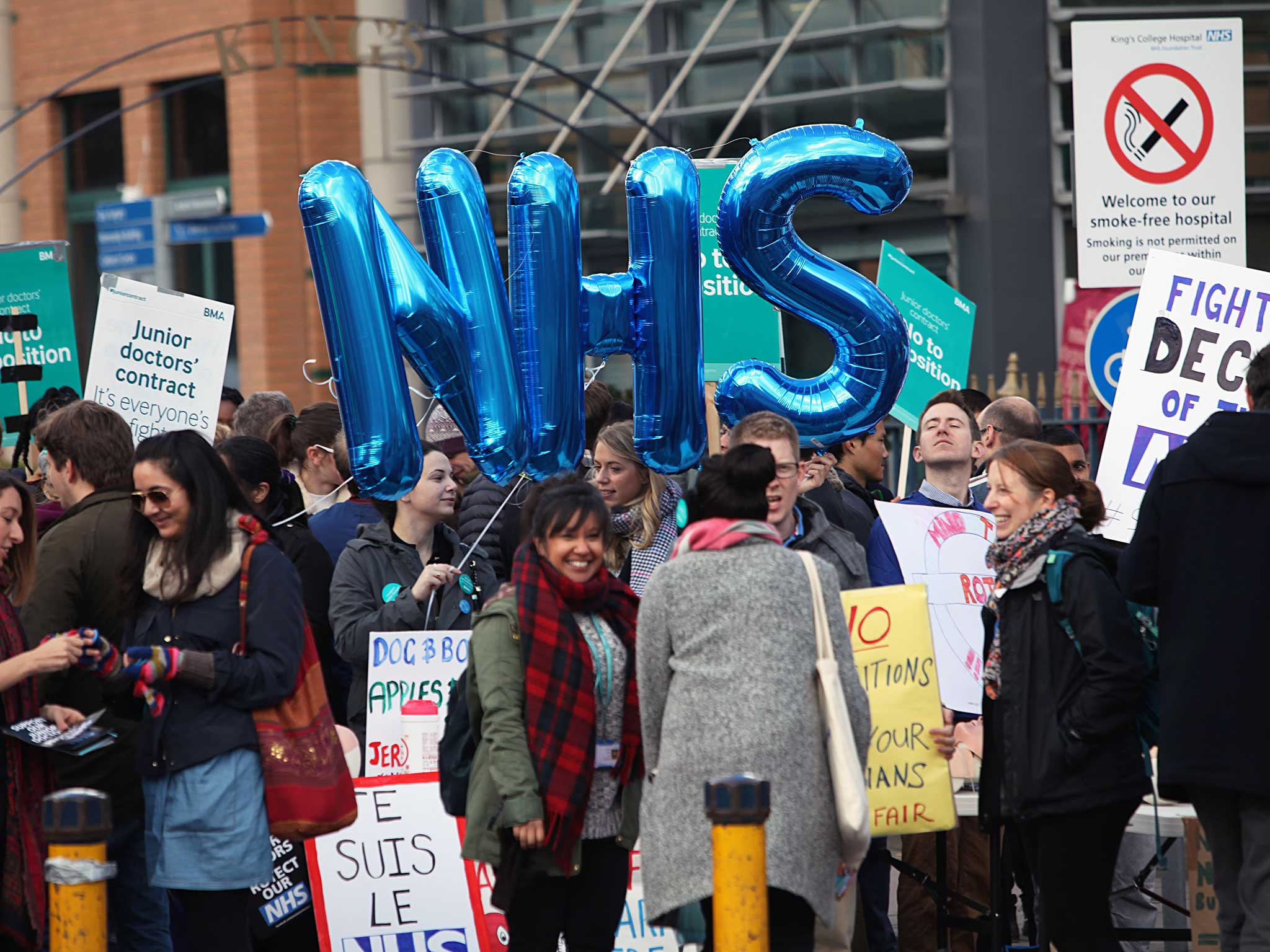Welcome news in the doctors dispute with renewed talks, but in the end the NHS still needs more resources
The priority now is not to allocate blame for how we got here, but to see a way through to a solution

Your support helps us to tell the story
From reproductive rights to climate change to Big Tech, The Independent is on the ground when the story is developing. Whether it's investigating the financials of Elon Musk's pro-Trump PAC or producing our latest documentary, 'The A Word', which shines a light on the American women fighting for reproductive rights, we know how important it is to parse out the facts from the messaging.
At such a critical moment in US history, we need reporters on the ground. Your donation allows us to keep sending journalists to speak to both sides of the story.
The Independent is trusted by Americans across the entire political spectrum. And unlike many other quality news outlets, we choose not to lock Americans out of our reporting and analysis with paywalls. We believe quality journalism should be available to everyone, paid for by those who can afford it.
Your support makes all the difference.The pause in imposing the junior doctors’ contract announced by Lord Prior, the health minister, yesterday is a welcome small sign of flexibility on the part of the Government. We hope that the doctors’ representatives respond in kind.
Anything that can pull either side back from more deeply entrenching their positions must be a good thing. One of the problems of this dispute, apart from the difficult questions of hours and conditions themselves, is that it has gained a momentum of its own. The doctors have become energised politically and many of them now see the dispute as a heroic struggle to save the NHS from a Health Secretary hell-bent on its destruction. The Government, on the other hand, has begun to see it as a test of wills. Mr Hunt refused to accept last weekend that he sees it as analogous to the miners strike, but there is a whiff of “Who governs Britain?” about him.
With such bad blood on both sides, it is hard to see how the compromise proposed by a range of opposition parties, led by Heidi Alexander, Labour’s shadow Health Secretary, could succeed. She wants to see the new contract tried out in a few places before being agreed nationally, but without good will on the part of junior doctors it would be difficult to make the new system work.
It is significant that this latest breakthrough has been brokered by the Royal Colleges, the traditional bastions of the medical profession, who appear to be uncomfortable with some of the militant trade unionism of the British Medical Association. As The Independent reported exclusively when the doctors went on their all-out strikes last week, the Royal Colleges remained silent.
So far, the junior doctors have retained the backing of public opinion – even when withdrawing emergency cover – but the Royal Colleges are right to recognise that the mood could turn if the strikes start to cost lives and the medical profession is seen as intransigent.
That said, the Government’s handling of the dispute has been so inept that it has allowed doctors and the general public to believe the worst of its motives. That may have been Mr Hunt’s reason for saying last week that he expected the Health department to be his “last big job”. It seemed a curious thing for a 49-year-old Cabinet minister to say, but was presumably said in the hope that he would not be seen as a careerist: that he was interested only in what was best for the NHS.
We do not blame Mr Hunt alone for the dispute. It has been running for years, but what turned it into a crisis was the Prime Minister’s unfunded and ill-thought-through slogan in the election campaign, promising a “seven-day NHS”.
However, the priority now is not to allocate blame for how we got here, but to see a way through to a solution. It may be that David Cameron will decide that this is indeed Mr Hunt’s last big job, and that it needs a new Secretary of State to rebuild a working relationship with doctors. Mr Cameron was ruthless enough to dispose of Michael Gove, after all, when he had antagonised teachers so much that he had become an electoral liability.
Usually, we prefer ministers to stay in post for a decent length of time. One of the failings of the last Labour government was the high and frequent turnover of ministers, which meant they rarely had time to gain a deep understanding of their brief. Mr Cameron must judge whether Mr Hunt has so lost the confidence of the medical profession that he needs a clean slate.
But The Independent believes that the underlying problem is one of resources. Most roads lead back to the Treasury, and this one certainly does. Junior doctors are demoralised not because the Government wants to pay them less on Saturdays and more at other unsocial hours, but because they are trying to hold together an NHS that is at breaking point.
One of the signal achievements of the Labour government was to raise spending on health care as a share of national income to the level of the west European average. Since then, although spending has continued to rise a little in real terms, it has slipped back against that benchmark.
Let us hope that yesterday’s progress in the pay dispute will prompt a bigger debate about whether we need an earmarked NHS tax to restore the ambition of matching the west European average.
Join our commenting forum
Join thought-provoking conversations, follow other Independent readers and see their replies
Comments